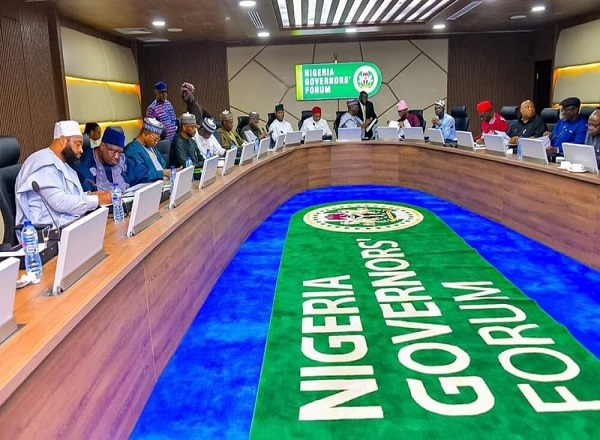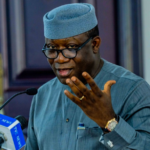In the bustling corridors of the United Nations headquarters in New York, amidst the cacophony of global diplomacy, I witnessed something that profoundly challenged my preconceptions about Nigerian leadership. Being part of the team to attend the Nigeria Governors’ Forum SDGs meeting, I had the privilege of sitting through several high-level meetings with four state Gov.s: Zamfara, Dauda Lawal; Plateau, Caleb Mutfwang; Benue, Hyacinth Alia; and Niger, Umar Bago.
Having attended UNGA for so many years, I did approach this year’s assembly with a sense of familiarity; perhaps I even had a tint of cynicism. How mistaken I was. This was to be the most impactful UNGA yet, one that completely altered my perception of our leaders. The disparity between public sentiment and what transpired was too wide, making sharing my observations and taking a stand on my conviction almost compulsory.
Let me be clear: I am not writing to convince anyone. I do this to hold my ground on an opinion that has been formed through first-hand experience, unmuffled by media stories or popular cynicism. What I observed during my time at UNGA deserves to be shared, not as propaganda but as proof of the potential that exists within our leadership once given the right platform and context.
Many Nigerians, myself included at one point, have often lamented on the capacity of our leaders to lead the country right. However, having been in the same space with these governors and listening to their reflective contributions made me question this narrative. It wasn’t only probing questions they asked or the articulation evident in their responses, but rather the well-defined strategies they have outlined that confirmed that these governors know not only what they are doing but actively work for long-term and sustainable solutions for their states.
- Let’s use gaming industry to address climate change issues – NLTF bossa
- States must channel gains of subsidy removal to agriculture – Senator Musa
During a high-level meeting with Dr. Ahunna Eziakonwa, UNDP Regional Director for Africa, Governor Dauda Lawal was refreshingly pragmatic. One of his statements resonated deeply with me: “What we need are not handouts but investment.” Lawal was quite articulate in a vision for Zamfara State that was all about creating an enabling environment for local and foreign investment. When investors come to Zamfara,” he said, “we won’t be asking you for financial aid. We’ll be building our economy from scratch.
This emphasis on self-reliance and economic development over aid dependency showed a certain finesse of understanding of the principles of sustainable development. He did not stop at mere rhetoric; they were backed by specific plans for mineral resource management, agricultural modernisation, and education reform in Zamfara. His ability to articulate these plans within the context of global development goals showed a certain level of strategic thinking that is rarely acknowledged in any discussion when it comes to Nigerian leadership.
In the same meeting, Governor Hyacinth Alia spoke to the necessity of coordination across various sectors. He articulated how governance—health, education, infrastructure—is an interconnected ecosystem, not a series of isolated projects. His emphasis on coordination between federal and state levels, as well as intra-state sectors, was compelling. Alia stressed that the real challenge isn’t a lack of ideas or resources in some cases but coordinating efforts across different sectors and levels of government.
Governor Caleb Mutfwang focused on transparency in governance during a meeting with Diaspora asserting that meaningful progress starts with trust and accountability was particularly striking. In a panel discussion, he didn’t shy away from acknowledging the trust deficit that often exists between Nigerian citizens and their government. “Transparency isn’t just a buzzword for us,” he stated emphatically. “It’s the foundation upon which we must rebuild trust in our institutions.”
Governor Bago spoke on the need for personal and collective responsibility in governance. He also touched on something particularly important to me – data. Passionately highlighting the role of data integrity, particularly in areas like mining where he reiterates accurate and reliable data are essential for evidence-based decision-making.
Each of these governors left no doubt in my mind that they understood the challenges facing their various states. But more importantly, they refused to give in to the common tale of hopelessness. These are not politicians mouthing platitudes or making vague promises. These are leaders grappling with complex challenges, proposing nuanced solutions, and engaging in substantive dialogue.
Nigeria, like most developing nations, faces budgetary constraints. This is not unique. However, the ability of a leader to act decisively within these constraints is often the mark of their true capability. The governors I was with in New York as well as the governors of Kaduna and Kano, whose works I also happen to be familiar with, have foresight, but they are also bound by the fiscal limitations of their states. The lack of resources has created a bottleneck that even the most capable leaders cannot bypass without creative solutions.
Other interesting aspects of these discussions were the contributions made by the young aides and commissioners attending the meetings. Energetic and young, they really displayed what Nigeria is made up of: untapped potential and ability lying in its youths. One memorable encounter was with Nafisat Musa Buge, the Commissioner for Environment from Kwara State; her engagement in discussions on climate change and environmental sustainability was quite captivating.
This further concretised my long-held view that Arewa women are an untapped goldmine of talent and potential. In her, I saw the reflection of many brilliant women across Nigeria whose voices and capabilities are often lost amidst obsolete stereotypes and systemic barriers.
For too long, our nation has overlooked the talents of young women in leadership roles. The inclusion of young women like Nafisat in high-level delegations isn’t just about representation. It’s about bringing diverse perspectives to the table. As I listened to this young lady contribute to discussions, I couldn’t help but think of how much faster we would go if the full potential of Nigerian women was unleashed.
What I saw in New York all points to a level of competence rarely acknowledged in discussions about Nigerian leadership, and it did pull the rug from under that illusion, so prevalent in the public discourse—that our leaders are incapable, incoherent, or rudderless. Contrariwise, I can say with absolute conviction that these what to do, but their frustration lies in the lack of adequate resources to realize those well-thought-of plans.
This realisation has profound implications for how we think about governance and development in Nigeria. It suggests that our focus should not just be on electing ‘good’ leaders but also on creating an environment where good leadership can translate into tangible results. This involves rethinking fiscal federalism, improving revenue generation, and fostering partnerships that can bring more resources to bear on our development challenges.
As I reflect on my experience, I’m filled with a sense of cautious optimism. While it’s crucial to call out corruption and incompetence where they exist, it’s equally important to recognize and support good leadership when we see it. As citizens, our task is not only holding our leaders accountable but actively taking part in the development process. We must be informed critics, yes, but also active partners in this task of building our country.
Dr. Halimah writes from Kano and can be reach via [email protected]

 Join Daily Trust WhatsApp Community For Quick Access To News and Happenings Around You.
Join Daily Trust WhatsApp Community For Quick Access To News and Happenings Around You.


